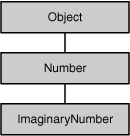Returning a Value from a Method
- completes all the statements in the method,
-
reaches a
returnstatement, or - throws an exception (covered later),
You declare a method's return type in its method declaration.
Within the body of the method, you use the return
statement to return the value.
Any method declared void
doesn't return a value. It does not need to contain a return statement, but it may do so.
In such a case, a return statement can be used to branch out of a control flow block and exit the method
and is simply used like this:
return;
void, you will get a compiler error.
Any method that is not declared void must
contain a return statement with a corresponding
return value, like this:
return returnValue;
The getArea() method in the Rectangle
Rectangle class that was discussed in the sections on objects returns an integer:
// a method for computing the area of the rectangle
public int getArea() {
return width * height;
}
width*height evaluates to.
The getArea method returns a primitive type. A method
can also return a reference type. For example, in a program to manipulate
Bicycle objects, we might have a method like this:
public Bicycle seeWhosFastest(Bicycle myBike, Bicycle yourBike, Environment env) {
Bicycle fastest;
// code to calculate which bike is faster, given
// each bike's gear and cadence and given
// the environment (terrain and wind)
return fastest;
}
Returning a Class or Interface
If this section confuses you, skip it and return to it after you have finished the lesson on interfaces and inheritance.
When a method uses a class name as its return type, such as
whosFastest does, the class of the type of the returned
object must be either a subclass of, or the exact class of, the
return type. Suppose that you have a class hierarchy in which
ImaginaryNumber is a subclass of
java.lang.Number, which is in turn a subclass of
Object, as illustrated in
the following figure.

The class hierarchy for ImaginaryNumber
Number:
public Number returnANumber() {
...
}
returnANumber method can return an
ImaginaryNumber but not an Object.
ImaginaryNumber is a Number because
it's a subclass of Number. However, an Object
is not necessarily a Number — it could be a
String or another type.
You can override a method and define it to return a subclass of the original method, like this:
public ImaginaryNumber returnANumber() {
...
}
Note: You also can use interface names as return types. In this case, the object returned must implement the specified interface.
